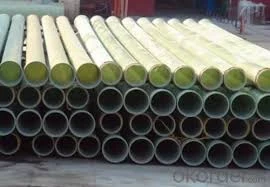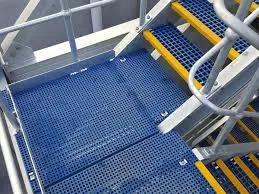
-
 Afrikaans
Afrikaans -
 Albanian
Albanian -
 Amharic
Amharic -
 Arabic
Arabic -
 Armenian
Armenian -
 Azerbaijani
Azerbaijani -
 Basque
Basque -
 Belarusian
Belarusian -
 Bengali
Bengali -
 Bosnian
Bosnian -
 Bulgarian
Bulgarian -
 Catalan
Catalan -
 Cebuano
Cebuano -
 China
China -
 China (Taiwan)
China (Taiwan) -
 Corsican
Corsican -
 Croatian
Croatian -
 Czech
Czech -
 Danish
Danish -
 Dutch
Dutch -
 English
English -
 Esperanto
Esperanto -
 Estonian
Estonian -
 Finnish
Finnish -
 French
French -
 Frisian
Frisian -
 Galician
Galician -
 Georgian
Georgian -
 German
German -
 Greek
Greek -
 Gujarati
Gujarati -
 Haitian Creole
Haitian Creole -
 hausa
hausa -
 hawaiian
hawaiian -
 Hebrew
Hebrew -
 Hindi
Hindi -
 Miao
Miao -
 Hungarian
Hungarian -
 Icelandic
Icelandic -
 igbo
igbo -
 Indonesian
Indonesian -
 irish
irish -
 Italian
Italian -
 Japanese
Japanese -
 Javanese
Javanese -
 Kannada
Kannada -
 kazakh
kazakh -
 Khmer
Khmer -
 Rwandese
Rwandese -
 Korean
Korean -
 Kurdish
Kurdish -
 Kyrgyz
Kyrgyz -
 Lao
Lao -
 Latin
Latin -
 Latvian
Latvian -
 Lithuanian
Lithuanian -
 Luxembourgish
Luxembourgish -
 Macedonian
Macedonian -
 Malgashi
Malgashi -
 Malay
Malay -
 Malayalam
Malayalam -
 Maltese
Maltese -
 Maori
Maori -
 Marathi
Marathi -
 Mongolian
Mongolian -
 Myanmar
Myanmar -
 Nepali
Nepali -
 Norwegian
Norwegian -
 Norwegian
Norwegian -
 Occitan
Occitan -
 Pashto
Pashto -
 Persian
Persian -
 Polish
Polish -
 Portuguese
Portuguese -
 Punjabi
Punjabi -
 Romanian
Romanian -
 Russian
Russian -
 Samoan
Samoan -
 Scottish Gaelic
Scottish Gaelic -
 Serbian
Serbian -
 Sesotho
Sesotho -
 Shona
Shona -
 Sindhi
Sindhi -
 Sinhala
Sinhala -
 Slovak
Slovak -
 Slovenian
Slovenian -
 Somali
Somali -
 Spanish
Spanish -
 Sundanese
Sundanese -
 Swahili
Swahili -
 Swedish
Swedish -
 Tagalog
Tagalog -
 Tajik
Tajik -
 Tamil
Tamil -
 Tatar
Tatar -
 Telugu
Telugu -
 Thai
Thai -
 Turkish
Turkish -
 Turkmen
Turkmen -
 Ukrainian
Ukrainian -
 Urdu
Urdu -
 Uighur
Uighur -
 Uzbek
Uzbek -
 Vietnamese
Vietnamese -
 Welsh
Welsh -
 Bantu
Bantu -
 Yiddish
Yiddish -
 Yoruba
Yoruba -
 Zulu
Zulu
Jan . 20, 2025 07:42
Back to list
fiberglass 90 degree elbow
Fiberglass 90 degree elbows have become a pivotal component in modern piping systems, renowned for their durability and versatility across a myriad of applications. As industries evolve and the demand for robust infrastructure solutions increases, the importance of understanding the unique characteristics of these fittings cannot be overstated.
Authoritativeness in the market is further cemented by compliance with global standards and certifications. Fiberglass 90 degree elbows produced by reputable manufacturers are often accredited by organizations such as ASTM and ANSI, which validate their suitability for various applications. These certifications not only affirm the mechanical and thermal properties of the products but also build trust among clientele who are increasingly conscious of safety and environmental concerns. Trustworthiness is fostered by transparent business practices and the provision of comprehensive technical support to customers. Manufacturers typically offer extensive documentation, including installation guides and maintenance manuals, which empower users to maximize the lifespan and performance of their fiberglass fittings. Additionally, dedicated customer service teams are available to address any queries or technical challenges that may arise, further reinforcing confidence in the product. Case studies from industry applications underscore the real-world benefits of utilizing fiberglass 90 degree elbows. In the oil and gas sector, for instance, pipelines outfitted with these fittings have demonstrated remarkable resilience in harsh offshore conditions, where metal pipes had previously failed. Similarly, in the chemical industry, installations have reported significant reductions in maintenance costs due to the non-reactive nature of fiberglass, allowing for uninterrupted production schedules and enhanced operational efficiency. Looking to the future, advancements in composite technology promise to enhance the performance characteristics of fiberglass 90 degree elbows further. Researchers are exploring hybrid materials and nano-enhancements to improve durability and reduce costs, positioning fiberglass as an even more attractive option for sustainable development. In summation, fiberglass 90 degree elbows stand out as a superior choice for modern piping systems thanks to their corrosion resistance, precision manufacturing, and compliance with industry standards. The collaboration between seasoned engineers and forward-thinking manufacturers ensures that these fittings remain at the forefront of infrastructure advancement. As industries worldwide continue to seek reliable and cost-effective solutions, fiberglass elbows are poised to meet and exceed these expectations, now and in the future.


Authoritativeness in the market is further cemented by compliance with global standards and certifications. Fiberglass 90 degree elbows produced by reputable manufacturers are often accredited by organizations such as ASTM and ANSI, which validate their suitability for various applications. These certifications not only affirm the mechanical and thermal properties of the products but also build trust among clientele who are increasingly conscious of safety and environmental concerns. Trustworthiness is fostered by transparent business practices and the provision of comprehensive technical support to customers. Manufacturers typically offer extensive documentation, including installation guides and maintenance manuals, which empower users to maximize the lifespan and performance of their fiberglass fittings. Additionally, dedicated customer service teams are available to address any queries or technical challenges that may arise, further reinforcing confidence in the product. Case studies from industry applications underscore the real-world benefits of utilizing fiberglass 90 degree elbows. In the oil and gas sector, for instance, pipelines outfitted with these fittings have demonstrated remarkable resilience in harsh offshore conditions, where metal pipes had previously failed. Similarly, in the chemical industry, installations have reported significant reductions in maintenance costs due to the non-reactive nature of fiberglass, allowing for uninterrupted production schedules and enhanced operational efficiency. Looking to the future, advancements in composite technology promise to enhance the performance characteristics of fiberglass 90 degree elbows further. Researchers are exploring hybrid materials and nano-enhancements to improve durability and reduce costs, positioning fiberglass as an even more attractive option for sustainable development. In summation, fiberglass 90 degree elbows stand out as a superior choice for modern piping systems thanks to their corrosion resistance, precision manufacturing, and compliance with industry standards. The collaboration between seasoned engineers and forward-thinking manufacturers ensures that these fittings remain at the forefront of infrastructure advancement. As industries worldwide continue to seek reliable and cost-effective solutions, fiberglass elbows are poised to meet and exceed these expectations, now and in the future.
Next:
Related Products
Latest news
-
Exploring the Benefits of Top Hammer Drifter Rods for Enhanced Drilling PerformanceNewsJun.10,2025
-
High-Precision Fiberglass Winding Machine for GRP/FRP Pipe Production – Reliable & Efficient SolutionsNewsJun.10,2025
-
FRP Pipes & Fittings for Shipbuilding - Corrosion-Resistant & LightweightNewsJun.09,2025
-
Premium FRP Flooring Solutions Durable & Slip-ResistantNewsJun.09,2025
-
Premium Fiberglass Rectangular Tanks Durable & Lightweight SolutionNewsJun.09,2025
-
Tapered Drill String Design Guide Durable Performance & UsesNewsJun.09,2025









